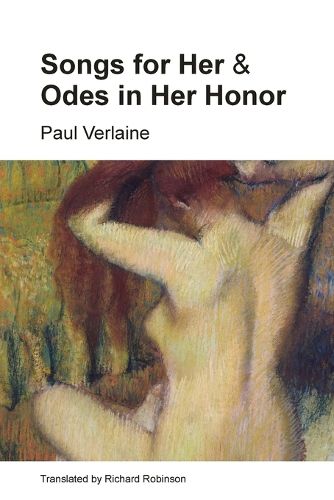Readings Newsletter
Become a Readings Member to make your shopping experience even easier.
Sign in or sign up for free!
You’re not far away from qualifying for FREE standard shipping within Australia
You’ve qualified for FREE standard shipping within Australia
The cart is loading…






This title is printed to order. This book may have been self-published. If so, we cannot guarantee the quality of the content. In the main most books will have gone through the editing process however some may not. We therefore suggest that you be aware of this before ordering this book. If in doubt check either the author or publisher’s details as we are unable to accept any returns unless they are faulty. Please contact us if you have any questions.
The first things that come to minds and lips, when thinking about Paul Verlaine?s poetry, are music and nuance. It is through his heightened employment simultaneously and regularly of those two attributes, of those two mesmerizing attributes of his often absinthe-like poetry, that Paul Verlaine, the poet, really shines, - brightly, not incandescently, but fluorescently, like the greenish-blue polestar on a winter?s night. But the poetry found in Songs for Her (1891) and Odes in Her Honor (1893) is somewhat contrary to the commonly held ideas of what Paul Verlaine?s poetry is or "should be," in terms of nuance; it is just as musically virtuosic or experimental as his earlier poetry was, which we all know and love. Because these are poems of mostly physical love, but also emotional love, between a middle-aged man and a woman (two women actually, just not a trois) - there is arguably little need for, and little use of, nuance. They are paeans to physical love.
Paul Verlaine didn?t set out to be Petrarch in these two books of poetry. And neither Philomene, the tantalizing tart at least twenty years his junior, the "her" in Odes in Her Honor; nor Eugenie, his practical and good-hearted if not somewhat ugly and thick-necked bed partner, the "her" in Songs for Her, - neither of them, those two muses, are like Laura.
$9.00 standard shipping within Australia
FREE standard shipping within Australia for orders over $100.00
Express & International shipping calculated at checkout
This title is printed to order. This book may have been self-published. If so, we cannot guarantee the quality of the content. In the main most books will have gone through the editing process however some may not. We therefore suggest that you be aware of this before ordering this book. If in doubt check either the author or publisher’s details as we are unable to accept any returns unless they are faulty. Please contact us if you have any questions.
The first things that come to minds and lips, when thinking about Paul Verlaine?s poetry, are music and nuance. It is through his heightened employment simultaneously and regularly of those two attributes, of those two mesmerizing attributes of his often absinthe-like poetry, that Paul Verlaine, the poet, really shines, - brightly, not incandescently, but fluorescently, like the greenish-blue polestar on a winter?s night. But the poetry found in Songs for Her (1891) and Odes in Her Honor (1893) is somewhat contrary to the commonly held ideas of what Paul Verlaine?s poetry is or "should be," in terms of nuance; it is just as musically virtuosic or experimental as his earlier poetry was, which we all know and love. Because these are poems of mostly physical love, but also emotional love, between a middle-aged man and a woman (two women actually, just not a trois) - there is arguably little need for, and little use of, nuance. They are paeans to physical love.
Paul Verlaine didn?t set out to be Petrarch in these two books of poetry. And neither Philomene, the tantalizing tart at least twenty years his junior, the "her" in Odes in Her Honor; nor Eugenie, his practical and good-hearted if not somewhat ugly and thick-necked bed partner, the "her" in Songs for Her, - neither of them, those two muses, are like Laura.